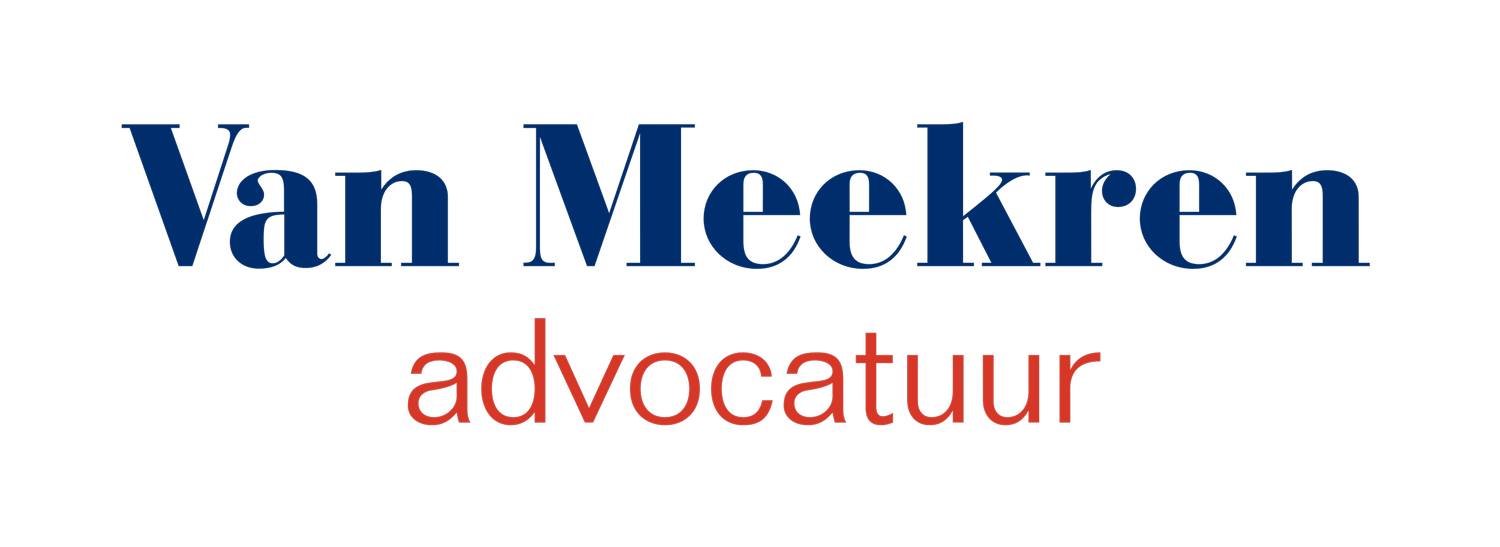Criminal liability of legal persons and managers
Traditionally, criminal law aims to punish harmful human behavior. The founder of our Dutch Penal Code had in particular the 'willed muscle movement' in mind. Meanwhile, the importance of peer pressure and power relations has penetrated the law. Society has also become much more complex.
This raises questions about other forms of criminal liability. Can a day laborer still be held responsible for a discharge he did at the behest of his manager? Is the intern at a bank responsible for money laundering if he or she accepts black money in accordance with internal policy? Or is it more appropriate to look at the manager or the company itself in such situations? And when then is the company or the managerial staff criminally liable?
Under Dutch law, not only natural persons, but also legal persons, actual directors and those who have ordered the commission of the criminal offenc can commit criminal offenses. Would you like to know more about this? Van Meekren Advocatuur has specific expertise on the criminal liability of legal persons and managers.
What is a legal person within criminal law?
Criminal law uses its own meaning of the term "legal person." Confusingly, this includes unincorporated forms of business, such as an unincorporated corporation or a partnership.
When is a director, principal or actual director criminally liable?
If a criminal offence is committed by a legal person, criminal proceedings may be instituted and
such punishments and measures as prescribed by law, where applicable, may be imposed:
those persons who have ordered the commission of the criminal offence, and
on those persons who actually directed the unlawful acts.
'Ordering' in the aforementioned sense means giving a directive within the ordinary meaning of the word.
The concept of actual director is somewhat broader. Actual directorship will often consist of active and effective behavior that falls within the ordinary meaning of that term. This may include (actively) implementing (wrong) policy or setting a (wrong) example to subordinates. Under circumstances, an actual director may also have a more passive role and still be criminally liable. This may be particularly the case if the person in question was authorized and reasonably required to take measures to prevent or end prohibited conduct and he or she fails to take such measures.
The actual director is only liable if he or she also intended the prohibited conduct. The lower limit for this is that the actual director accepts the substantial probability that the prohibited conduct will occur.
Actual directors and those who have ordered the commission of a criminal offense will often be (formal) directors of a company, but being a director alone is not sufficient. The reverse is also true: it is also conceivable that someone may not hold a formal directorship but still be criminally liable as an actual director.
When is a legal entity criminally liable?
According to established case law of the Supreme Court, a legal person can be regarded as a perpetrator of a criminal offense if the conduct in question "can reasonably be attributed to him. The question when a (prohibited) conduct can reasonably be attributed depends on the concrete circumstances of the case, which includes the nature of the (prohibited) conduct. An important point of reference for the attribution is the question of whether the conduct took place or was performed "in the sphere of the legal person. This will be the case, among others, when it concerns:
to acts or omissions of any person employed either by virtue of employment or otherwise on behalf of the legal entity;
the conduct is in the ordinary course of business of the legal entity;
the conduct served the legal entity; and
the legal entity had control over whether or not the conduct would occur. This includes failure to exercise the care that could reasonably be expected of the legal entity to prevent the act.
If one or more of these landmarks are met, that is an indication that the conduct can be attributed to the legal entity. However, it remains difficult (and therefore uncertain) whether that is the case. The first landmark by itself will not (easily) suffice. By way of illustration, this landmark is even met when an employee prejudices his or her employer - for example, he or she takes a bite out of the till. Of course, the legal entity will not then also be considered a thief. It is somewhat different with the other landmarks, partly because they usually only apply if one or more other landmarks are met at the same time. In those situations, the legal entity is therefore more likely to be held liable for the conduct.
If the offense of which the legal person is suspected requires "intent," it will also be necessary to determine whether the legal person acted intentionally. Determining the intent of a legal entity can be done in several ways. Sometimes a natural person's intent can be imputed to a legal entity, but that is not a necessary condition. The intent of a legal person can also be inferred from the legal person's policies or the actual course of events within the legal person under circumstances.
You can read an example of criminal liability of a legal entity here (ECLI:NL:HR:2018:1675), in which a company was held criminally liable for forgery by widely billing dab as if it were school.
In view of the foregoing, it is far from clear in advance whether a company is also criminally liable for the actions of subordinates. Should you have any doubts about this, let yourself be informed by a lawyer with specific expertise on the criminal liability of legal persons. At Van Meekren Advocatuur you have come to the right place.
Assistance in a criminal case
Are you or is your company being prosecuted for a criminal offense? Or are you in need of advice? Then it is important to seek specialized legal assistance at an early stage.
Seeking legal advice
For whatever reason, you may be faced with the question of whether you or your company can be held criminally liable for the conduct of subordinates. Perhaps you want to launch a new product with certain health risks. Perhaps you want to go into business in a region with high levels of corruption and it is unclear to you how staff will behave when confronted in a difficult situation. Or perhaps you are considering reviewing your internal policies to prevent money laundering, bribery and corruption. For such issues and more, you have come to the right place at Van Meekren Advocatuur.
Defendant in a criminal case
Certainly there is much to be gained in the prosecution of corporations. Many companies prefer a transaction to (public) proceedings, and the Public Prosecution Service is generally more inclined to settle with companies than with directors. Whether the public prosecutor is willing to settle depends, of course, on all the circumstances of the case. Factors that may come into play - according to their own policies include:
Whether the defendant (company) recognizes;
the measures taken or to be taken for prevention or termination;
defendant's role in uncovering the crimes; and
compensation for any damages or willingness to do so.
With those criteria in mind, it may be helpful to take one or more of the following actions:
conducting (or having conducted) internal investigations into the prohibited conduct;
adjustment of policies;
dismissal of affected personnel;
Negotiate compensation from injured person(s); and/or
report themselves to the prosecutor's office.
Whether or not to take these actions (or have them taken) requires strategic consideration. At Van Meekren Advocatuur we have many years of experience. Like no other we can assist you or your company in this matter.
Should settlement negotiations fail to produce the desired result, Van Meekren Advocatuur can also represent your or your company's interests in court.
Direct contact
Looking for a lawyer with knowledge about the criminality of legal entities, actual directors or principals? Feel free to contact us via the contact form. We generally respond within one business day.


